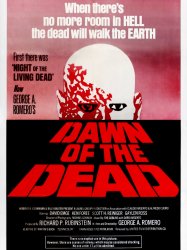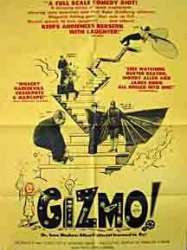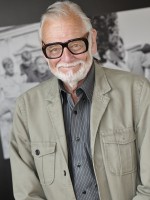Howard Smith is a Actor, Director and Producer American born on 10 december 1936 at Newark (USA)

Howard Smith (b. 1936, Newark, New Jersey ) is an American Oscar winning film director, producer, journalist, screenwriter, actor, and radio broadcaster.
He later attended Pace College in New York City but left to write poetry.
Smith started his career as a photographer. His work appeared in Life, Newsweek and many other national publications.
Journalist
Several years later, he pursued journalism from another perspective and became a writer for more than thirty years. His articles appeared in newspapers and magazines ranging from Playboy to The New York Times; from the Ladies Home Journal to The Village Voice.
He wrote regularly for the New York City based weekly newspaper, The Village Voice, in the 1960s and 1970s. One of his regular columns was "Scenes".
During the Village Voice's early and formative years, his column, "Scenes", with its reporting on the emerging counterculture, became a part of the paper's groundbreaking new journalism. The column ran weekly for twenty years and became known for its cutting edge coverage and innovative short-form critiques. His work for the Village Voice is frequently cited as one of the highly influential examples of the new participatory journalism that made less rigid the distinction between the observer and the observed.
At the peak of the historic Stonewall Riots in New York City in 1969, he managed to get inside the now famous
bar with his Village Voice reporter's police credentials. He was the only journalist who reported about the siege from that dangerous vantage point. He would later be interviewed on this first-hand reporting in the 2010 documentary film, Stonewall Uprising.
Film producer and director
Howard produced and directed, with Sarah Kernochan, the Oscar winning feature-length documentary film, "Marjoe", in 1972, about the evangelist Marjoe Gortner.
When it was first shown at the Cannes Film Festival, and subsequently played in theatres worldwide, the movie caused a sensation by exposing, for the first time ever, the underbelly of a corrupt movement, including its self-righteous religious leaders, that was about to burst into public awareness.
He followed up with a documentary film in 1977, called "Gizmo!", about improbable inventions of modern times, caught on film. The film received wide distribution and acclaim.
He was also a film actor and a screenwriter.
Radio
In the 1960s and 1970s, Howard had a weekend overnight show on WPLJ FM radio in New York City, and syndicated nationally, conducting extensive in-depth interviews with well-known musicians and notable figures, as well as playing an interesting mix of albums and songs in the "progressive" freeform rock music and Album-oriented rock formats.
He covered many of the tumultuous era's most legendary events including Woodstock, from which America heard his live radio reports, broadcast around the clock for five full days.
Over the years he interviewed an array of pop-culture icons: From Mick Jagger to Buckminster Fuller; from Janis Joplin to Margaret Mead. The list continues with Jim Morrison, Hugh Hefner, Jane Fonda, John Lennon and Yoko Ono, George Harrison, Andy Warhol, Ravi Shankar, Dustin Hoffman, Carole King, Jack Nicholson and many others.
Lecturer and pundit
Howard Smith became particularly well known for his insights into the growing influence and economic power of America's rapidly expanding Youth Culture. As a result, he frequently lectured and was a guest on many network TV shows.
1990s and beyond
In the early 1990s, he shifted his creative focus to concentrate his activities in the world of non-profit organizations. Amongst these, he is a former board member, and Director of Operations for the Mood Disorders Support Group (MDSG), a New York City organization helping people with depression, manic depression, and their families and friends.
He was writing a book about his involvement, as both participant and commentator, in the late 1950s beatnik scene, the explosive hippie 1960s, right through to the brouhaha that was to characterize the Nixonian mid-1970s.
On November 15, 2005, in New York City, the IFC Center showed "Marjoe" as the closing film in a series of documentaries called "Stranger Than Fiction". In their program they called it "a lost gem."
In 2012 he released digital copies of his interviews.
Source : Wikidata
Howard Smith

Biography
Howard Smith was born in 1936 and raised in Newark, New Jersey where his parents owned a cigar store. He was interested in inventions when he was a youngster.He later attended Pace College in New York City but left to write poetry.
Smith started his career as a photographer. His work appeared in Life, Newsweek and many other national publications.
Journalist
Several years later, he pursued journalism from another perspective and became a writer for more than thirty years. His articles appeared in newspapers and magazines ranging from Playboy to The New York Times; from the Ladies Home Journal to The Village Voice.
He wrote regularly for the New York City based weekly newspaper, The Village Voice, in the 1960s and 1970s. One of his regular columns was "Scenes".
During the Village Voice's early and formative years, his column, "Scenes", with its reporting on the emerging counterculture, became a part of the paper's groundbreaking new journalism. The column ran weekly for twenty years and became known for its cutting edge coverage and innovative short-form critiques. His work for the Village Voice is frequently cited as one of the highly influential examples of the new participatory journalism that made less rigid the distinction between the observer and the observed.
At the peak of the historic Stonewall Riots in New York City in 1969, he managed to get inside the now famous
bar with his Village Voice reporter's police credentials. He was the only journalist who reported about the siege from that dangerous vantage point. He would later be interviewed on this first-hand reporting in the 2010 documentary film, Stonewall Uprising.
Film producer and director
Howard produced and directed, with Sarah Kernochan, the Oscar winning feature-length documentary film, "Marjoe", in 1972, about the evangelist Marjoe Gortner.
When it was first shown at the Cannes Film Festival, and subsequently played in theatres worldwide, the movie caused a sensation by exposing, for the first time ever, the underbelly of a corrupt movement, including its self-righteous religious leaders, that was about to burst into public awareness.
He followed up with a documentary film in 1977, called "Gizmo!", about improbable inventions of modern times, caught on film. The film received wide distribution and acclaim.
He was also a film actor and a screenwriter.
Radio
In the 1960s and 1970s, Howard had a weekend overnight show on WPLJ FM radio in New York City, and syndicated nationally, conducting extensive in-depth interviews with well-known musicians and notable figures, as well as playing an interesting mix of albums and songs in the "progressive" freeform rock music and Album-oriented rock formats.
He covered many of the tumultuous era's most legendary events including Woodstock, from which America heard his live radio reports, broadcast around the clock for five full days.
Over the years he interviewed an array of pop-culture icons: From Mick Jagger to Buckminster Fuller; from Janis Joplin to Margaret Mead. The list continues with Jim Morrison, Hugh Hefner, Jane Fonda, John Lennon and Yoko Ono, George Harrison, Andy Warhol, Ravi Shankar, Dustin Hoffman, Carole King, Jack Nicholson and many others.
Lecturer and pundit
Howard Smith became particularly well known for his insights into the growing influence and economic power of America's rapidly expanding Youth Culture. As a result, he frequently lectured and was a guest on many network TV shows.
1990s and beyond
In the early 1990s, he shifted his creative focus to concentrate his activities in the world of non-profit organizations. Amongst these, he is a former board member, and Director of Operations for the Mood Disorders Support Group (MDSG), a New York City organization helping people with depression, manic depression, and their families and friends.
He was writing a book about his involvement, as both participant and commentator, in the late 1950s beatnik scene, the explosive hippie 1960s, right through to the brouhaha that was to characterize the Nixonian mid-1970s.
On November 15, 2005, in New York City, the IFC Center showed "Marjoe" as the closing film in a series of documentaries called "Stranger Than Fiction". In their program they called it "a lost gem."
In 2012 he released digital copies of his interviews.
Usually with
Filmography of Howard Smith (8 films)
Actor

Dawn of the Dead (1978)
, 1h57Directed by George A. Romero, Dario Argento
Origin USA
Genres Science fiction, Action, Horror, Apocalyptic and post-apocalyptic fiction
Themes Medical-themed films, Post-apocalyptic films, Films about religion, Transport films, Motocyclette, Films set in the future, Zombie films, Films about viral outbreaks, Political films, Dystopian films, Disaster films
Actors David Emge, Ken Foree, Scott Reiniger, Gaylen Ross, James A. Baffico, David Early
Roles TV Commentator
Rating77%





The United States is devastated by a mysterious phenomenon which reanimates recently deceased unburied human beings as flesh-eating zombies. Despite the best efforts by the U.S. government and local authorities to control the situation, society is beginning to collapse and the remaining survivors are given to chaos. Some rural communities and the military have been effective in fighting the zombies in open country, but cities are helpless and largely overrun. Confusion reigns at the WGON television studio in Philadelphia by the phenomenon's third week, where staff members Stephen Andrews and Francine Parker are planning to steal the station's traffic helicopter to escape the zombies. Meanwhile, police SWAT officer Roger DiMarco and his team raid an apartment building where the residents are defying the martial law of delivering their dead to National Guardsmen. Some residents fight back with handguns and rifles, and are killed by both the overzealous SWAT team and their own reanimated dead. During the raid, Roger meets Peter Washington, part of another SWAT team, and they partner up together. Roger tells Peter that his friend Stephen intends to take his network's helicopter, and suggests that Peter come with them. The matter is decided when they are informed of a group of zombies sheltered in the basement, which they execute with grim determination.

No Time for Sergeants (1958)
, 1h59Directed by Mervyn LeRoy
Origin USA
Genres Drama, War, Comedy
Themes Military humor in film, Théâtre, Transport films, Aviation films, Films based on plays, United States Armed Forces in films
Actors Andy Griffith, Myron McCormick, Nick Adams, Murray Hamilton, Howard Smith, Howard Smith
Rating74%





Will Stockdale (Andy Griffith) is a backward, backwoods rube from outside Callville, Georgia who may or may not be smarter than he looks. Accused by Mr. McKinney (Dub Taylor) the head of the draft board of being a draft dodger, it turns out that Stockdale's draft notices have been hidden from him by his father, who doesn't want the boy to leave home and be ridiculed. His father tells Will to be careful going to big cities like Macon and Atlanta. Pa Stockdale says he has been to those cities many years before and he was ridiculed.

I Bury the Living (1958)
, 1h16Directed by Albert Band
Origin USA
Genres Thriller, Horror
Themes Zombie films
Actors Richard Boone, Theodore Bikel, Barbara Steele, Helga Liné, Howard Smith, Herbert Anderson
Rating62%





Robert Kraft (Richard Boone) is the newly appointed chairman of a committee that oversees a large cemetery. The cemetery caretaker, Andy MacKee (Theodore Bikel), keeps a map in the cemetery office displaying the grounds and each grave site. Filled graves are marked by black pins and unoccupied but sold graves are marked with white pins. New to the position and unobservant, Kraft accidentally places a pair of black pins where they don't belong, only to discover later that the young couple who had bought the grave sites in question died in an automobile accident soon afterwards. He believes that he marked them for death.

Call Northside 777 (1948)
, 1h46Directed by Henry Hathaway
Origin USA
Genres Drama, Noir, Crime
Themes Films about writers, Films about journalists, Children's films
Actors James Stewart, Richard Conte, Lee J. Cobb, Moroni Olsen, Helen Walker, J. M. Kerrigan
Rating73%





In Chicago in 1932, during Prohibition, a policeman is murdered inside a speakeasy. Frank Wiecek (Richard Conte) and another man are quickly arrested, and are later sentenced to serve 99 years' imprisonment each for the killing. Eleven years later, Wiecek's mother (Kasia Orzazewski) puts an ad in the newspaper offering a $5,000 reward for information about the true killers of the police officer.

The Street with No Name (1948)
, 1h31Directed by William Keighley
Origin USA
Genres Drama, Thriller, Action, Noir, Crime
Themes Children's films
Actors Mark Stevens, Richard Widmark, Lloyd Nolan, Barbara Lawrence, Ed Begley, John McIntire
Rating69%





The opening credits include the following foreword: The motion picture you are about to see was adapted from the files of the Federal Bureau of Investigation. Wherever possible, it was photographed in the original locale and played by the actual FBI personnel involved.

Kiss of Death (1947)
, 1h38Directed by Henry Hathaway
Origin USA
Genres Drama, Thriller, Action, Noir, Crime
Themes Children's films
Actors Victor Mature, Brian Donlevy, Coleen Gray, Richard Widmark, Karl Malden, Howard Smith
Rating73%





The film begins, as it ends, with narration by Nettie. On Christmas Eve, down-on-his-luck Nick Bianco (Victor Mature), an ex-convict, and his three cohorts rob a jewelry store located on an upper floor of a New York skyscraper. Before they can exit the building, however, the proprietor sets off his alarm. While attempting to escape, Nick assaults a policeman, but is wounded in the leg and arrested.
Director

Gizmo! (1977)
Directed by Howard Smith
Origin USA
Genres Comedy, Documentary
Themes Documentary films about technology
Rating76%





Ce document est un hommage à tous les inventeurs qui ont tenté l'impossible, un regard humoristique porté sur les projets, les tentatives, les paris les plus insensés, une façon nouvelle d'envisager l'ère technologique en montrant que, sans ces milliers d'hommes et de femmes du monde entier qui ont osé rendre plausible l'invraisemblable, nous serions encore en train de rouler avec des « roues carrées ». (Texte français écrit et dit par Pierre Tchernia. Musique de Dick Lasky, durée du film 85 min)

Marjoe (1972)
, 1h28Directed by Sarah Kernochan, Howard Smith
Origin USA
Genres Documentary
Themes Films about religion, Documentary films about religion
Actors Marjoe Gortner, Sarah Kernochan
Rating73%





Marjoe est un enfant-prédicateur précoce aux talents extraordinaires, qui était immensément populaire dans le Sud des Etats-Unis. Ses parents gagnent de grosses sommes d'argent grâce à ses dons. Adulte, Marjoe devient ministre du culte uniquement car c'est un moyen facile de gagner sa vie, et non en tant que croyant. Au cours des années suivantes, il utilise sa notoriété et son statut d'évangéliste pour gagner sa vie comme prédicateur itinérant et en faisant du télévangélisme.
Producer

Gizmo! (1977)
Directed by Howard Smith
Origin USA
Genres Comedy, Documentary
Themes Documentary films about technology
Roles Producer
Rating76%





Ce document est un hommage à tous les inventeurs qui ont tenté l'impossible, un regard humoristique porté sur les projets, les tentatives, les paris les plus insensés, une façon nouvelle d'envisager l'ère technologique en montrant que, sans ces milliers d'hommes et de femmes du monde entier qui ont osé rendre plausible l'invraisemblable, nous serions encore en train de rouler avec des « roues carrées ». (Texte français écrit et dit par Pierre Tchernia. Musique de Dick Lasky, durée du film 85 min)

Marjoe (1972)
, 1h28Directed by Sarah Kernochan, Howard Smith
Origin USA
Genres Documentary
Themes Films about religion, Documentary films about religion
Actors Marjoe Gortner, Sarah Kernochan
Roles Producer
Rating73%





Marjoe est un enfant-prédicateur précoce aux talents extraordinaires, qui était immensément populaire dans le Sud des Etats-Unis. Ses parents gagnent de grosses sommes d'argent grâce à ses dons. Adulte, Marjoe devient ministre du culte uniquement car c'est un moyen facile de gagner sa vie, et non en tant que croyant. Au cours des années suivantes, il utilise sa notoriété et son statut d'évangéliste pour gagner sa vie comme prédicateur itinérant et en faisant du télévangélisme.
 Connection
Connection



